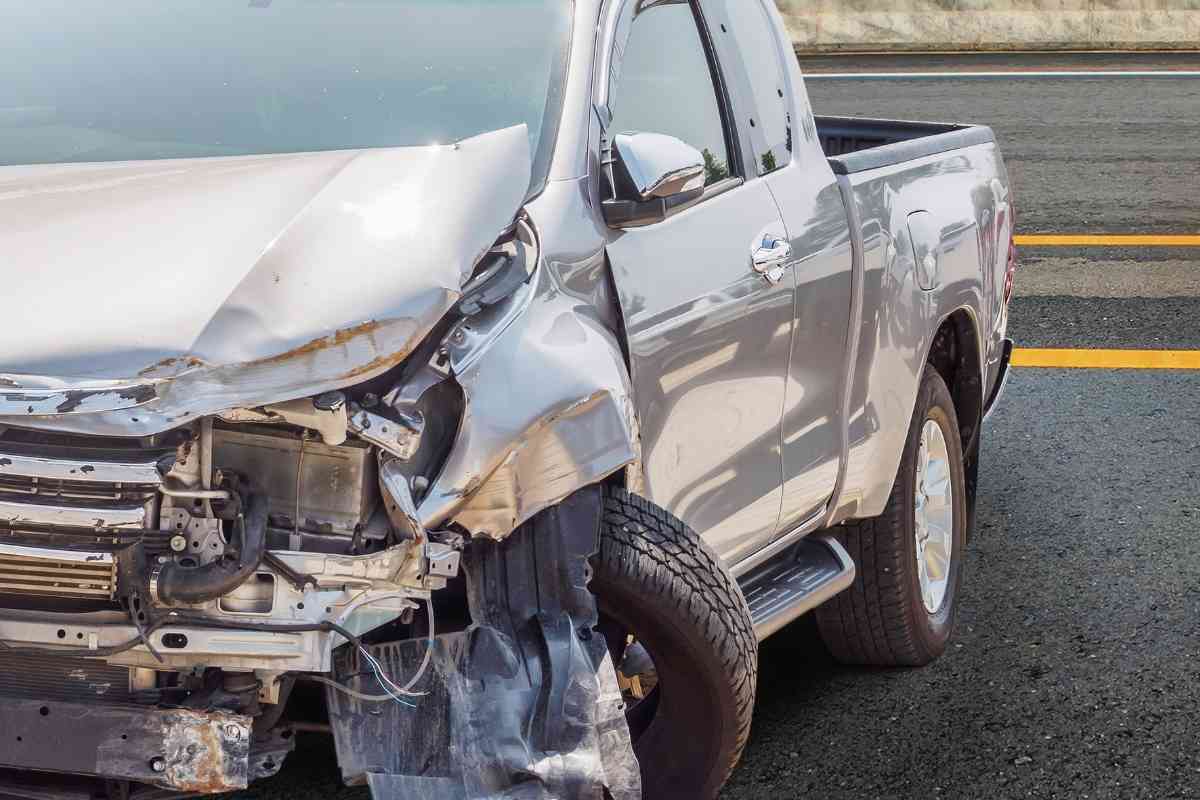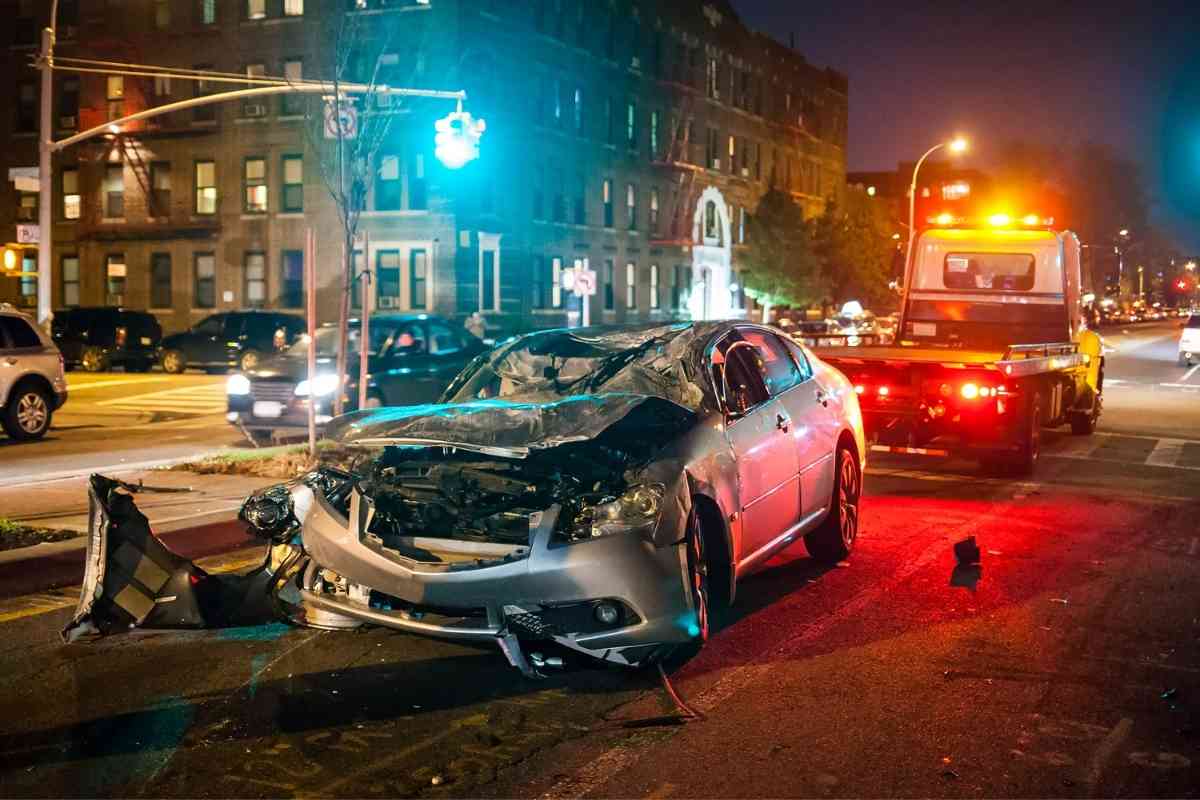Are Pickup Trucks Safer Than Cars? Answered!
When selecting a vehicle for yourself or a family member, it’s tough to know the safest option. One question that arises asks if pickup trucks are safer than cars. Safety is a big deal for most drivers. While crash test ratings can begin to help you how to expect in the case of an accident, what about preventing an accident in the first place?

What’s Safer: Cars or Trucks?
Relatively speaking, trucks can be safer than cars. The chances of dying in a car crash when driving a truck are about half that of driving the smaller classes of SUVs or sedans. While pickup trucks are safer, they do have some tradeoffs from the way they are built.
We’ll look at the results of crash tests between vehicles like cars, SUVs, and trucks. We’ll also consider how test results have changed over the last few decades, as well as how safety technology has changed.
We’ve worked in the automotive world for a while. We’re also good at compiling research and finding the right answer about the safety of your vehicles. We’ll be using crash test information as well as knowledge from the National Highway Traffic and Safety Administration. With that said, let’s learn about truck safety.
Is bigger safer?
In many ways, driving a bigger vehicle is safer. While there are many variables that go into how people and their vehicles respond to a crash – especially speed, most crash evidence points to larger vehicles in any category being safer than smaller ones.
This is to say that choosing the smallest SUV available in its class is more likely to lead to death or injury in an accident. A truck does have the potential to be the safest vehicle for your family.
You can overcome some safety concerns by choosing the safest option available.
Trucks actually don’t keep up with cars
Deaths in motor vehicle accidents used to be more common. Vehicles were only beginning to use airbags and other basic safety devices. Since the implementation of safety devices, deaths have gone down dramatically for drivers and passengers in sedans and SUVs.
The same is not true for trucks. Truck deaths are indeed down, but not by much compared to SUVs and sedans. While this is in part speculation, here is the potential for why:
Standard and advanced safety features

While vehicles are now required to have basic safety features like antilock brakes and airbags, there are many other ways manufacturers can make vehicles safer now.
We could go into lots of detail about different radar-based safety features, but the most important ones alert you to vehicles and people in your blind spot, or when a pedestrian is crossing in front of your vehicle at speed.
Some vehicles have the potential to apply automatic brakes when you are driving and are about to hit something – which is especially nice when you are driving through an area that could have people crossing without looking.
While these advanced safety features are outstanding, many trucks don’t come with them. Much of the NHTSA safety rating – that comes with dramatic video of crash test dummies – measures the ability of a vehicle to withstand impact.
While the IIHS offers a Top Safety Pick program which includes the ability to prevent a crash. At the moment, there are many large SUVs, sedans, and others with a Top Safety Pick, but no small or large trucks.
In some cases, upgrading a truck from the base model offers the ability to get some advanced safety features. This is to say that spending more money will get you better access to being able to prevent a crash.
What potentially makes trucks more or less safe?
Trucks have a few design advantages and flaws that could make them potentially less likely to cause you an accident injury.
Bigger frame
Trucks often have a bigger frame that is more likely to absorb the impact of another vehicle. A more robust frame is added in part to make the payload and towing capacity larger, but it serves to keep passengers safe too.
Higher ride
This is truly a mixed bag. A truck normally rides higher than a car or SUV because of larger tires and a raised suspension.
If a truck crashes into a smaller vehicle, the smaller vehicle is more likely to take the brunt of the impact. This is one of the problems that make a large truck hitting a small car especially dangerous.
The higher ride also increases the chance that a truck – especially a lifted truck, could flip whether in an accident or an out-of-control turn. You’ve probably seen videos of truck drivers reacting strongly to someone entering their lane and flipping their vehicle when their truck becomes unbalanced. This does happen to SUVs too!
A truck driver’s actual view from the windshield is also a bit different than a sedan or SUV. Sure, a truck can see further down the road but has a harder time seeing a small convertible directly in front of them.
Kinetic energy
There are two parts at play here: A truck brings more kinetic energy but also slows down less quickly. What does that mean? A smaller vehicle will feel a bigger impact from a larger truck, so there is a higher chance of injury from an accident.
A small vehicle also has the potential to slow down faster- whether due to pushing the brakes or being hit by another vehicle – with kinetic energy being thrown around, passengers are more likely to experience an injury as their vehicle comes to a forceful stop. A truck won’t stop quite so fast, so injury at the moment after impact is less likely.
How should I pick a vehicle for safety?
When you are researching vehicles, consider looking at the previously mentioned Top Safety Picks through the IIHS. These vehicles are best equipped to withstand the impact of a crash.
Finding a vehicle with built-in safety features that go beyond airbags and antilock brakes is also quite helpful. Simple features like side blind zone alerts can have a huge impact, even if they don’t stop the car.
Some Hondas and Toyotas, amongst other manufacturers, come with standard emergency braking to force the vehicle to a stop if something is in your path. This is excellent both for people who are distracted – and because sometimes human reaction times just can’t handle split-second decisions.
You can also do some research and see which brands offer the best safety cages. Volvo and Audi come to mind, but there are many more that offer great protection against crashes.
It’s also easier to find a vehicle with a good safety cage than it will be to find one with more advanced safety features. More technical safety features are out there, often at a premium price as they were introduced to the car market just over a decade ago.
According to the IIHS study, the safest vehicle on the road is actually a minivan. While minivans tend to offer the same safety features and cages as other vehicles, the drivers often take the pace a little slower and are less likely to get into a high-speed accident.
